Why Just Stop Oil's long jail sentences could embolden some activists
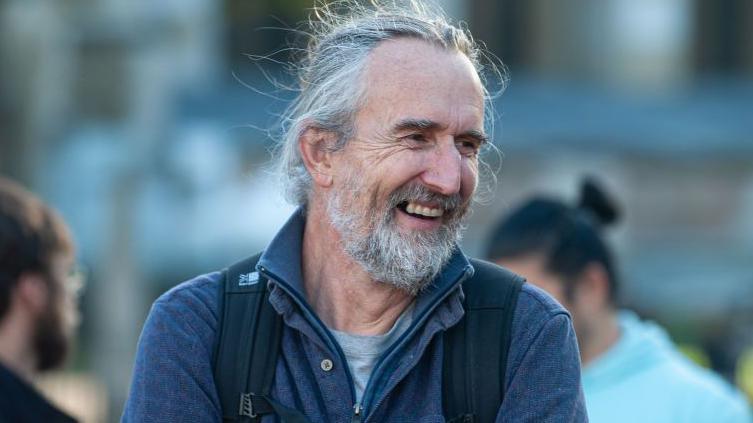
Extinction Rebellion founder Roger Hallam
- Published
When five activists who brought chaos to the M25 motorway were jailed last week, some thought the law had finally caught up with Just Stop Oil.
Celebrities spoke out in anger at the lengthy sentences - and a United Nations official described their treatment as “not acceptable in a democracy”.
With Roger Hallam, the architect of the modern environmental protest movement, and his co-conspirators now behind bars, this might have been “checkmate” in a five-year long game of legal chess between the state and a group of increasingly bold direct action environmental groups.
But at least for some Just Stop Oil activists, it doesn't appear to have worked.
On Wednesday ten of them were arrested at Heathrow Airport after a suspected plot to block the runway was foiled at last minute.
That shouldn’t come as a surprise, because getting jailed was always part of the strategy for JSO. It is one of the first things that new joiners are asked: would you be locked up?
Speaking to the BBC exclusively in a recorded message from his prison cell this week, Hallam stood by his actions.
“The strategic moral imperative is resistance to the greatest [crisis] in the history of humanity”, the JSO co-founder said.
Direct action remains “the right strategy”, he added, confident that while in the short run some people may be deterred, others will only grow more determined.
It begs the question of what Just Stop Oil is planning next - and whether they're about to outpace the law once again.
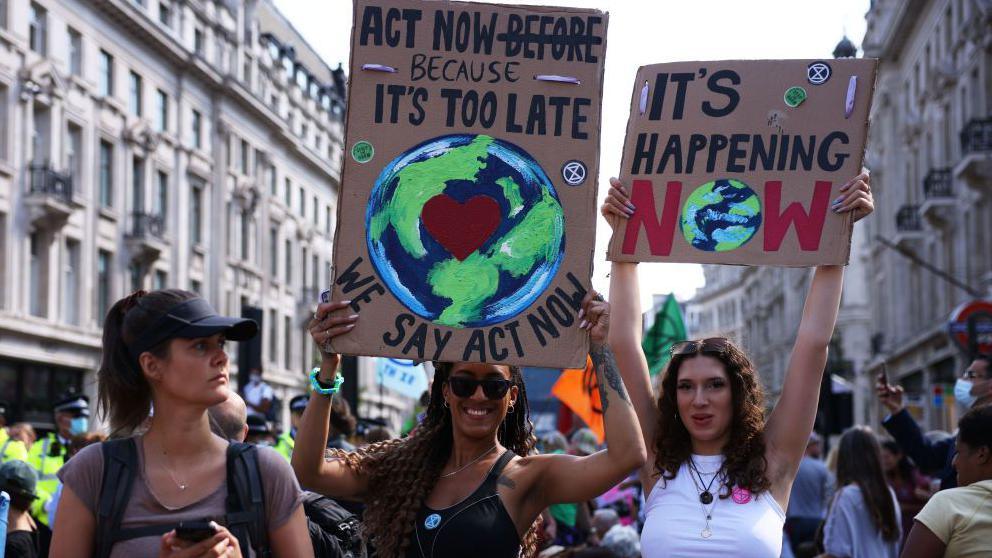
Extinction Rebellion burst onto the scene with a series of headline-grabbing demonstrations
It all began with Extinction Rebellion (XR).
The organisation was co-founded by Hallam and burst into the public consciousness with a series of demonstrations involving hundreds of people blocking roads in central London, culminating in the protests of April 2019.
Protesters brought parts of the capital to a halt for more than a week - and dumped a large pink boat in the middle of Oxford Circus.
It was a spectacle - but the police were furious as they were diverted from frontline duties. By the end of the year, XR protests had cost them £37m.
Meanwhile XR split under the weight of public fury over the chaos.
In July 2020, the group expelled Hallam and later disavowed actions that interfered with people’s daily lives, saying it wanted to “prioritise attendance over arrest".
Enter Just Stop Oil and Insulate Britain, two new groups created by Hallam and other disaffected XR members to continue the disruptive direct action tactic.
JSO is now by far the most active of the two. As well as its no-notice motorway occupations, it has targeted sporting events, including Wimbledon and the Ashes and famously brought the World Snooker Championship in Sheffield to a standstill with an explosion of orange chalk dust.
In the face of this disorder the state felt compelled to act. Police chiefs asked for more and better powers - and they got them.
Today police chiefs can impose time and noise limits on protests.
Just Stop Oil sentences condemned by celebrities
- Published23 July 2024
What is Just Stop Oil and what are its goals?
- Published19 June 2024
It’s now a crime to “lock on” to an object with super glue, but the most important new power is the crime of causing a public nuisance - used effectively against protesters blocking roads.
An activist can be guilty of causing public nuisance if they do something that causes “serious harm” to the public, defined by Parliament as causing “serious annoyance” and “serious inconvenience”.
Between its introduction in 2022 and the end of 2023, figures show that there have been 250 prosecutions for this offence, many of them climate protesters. About half have resulted in a conviction.
But the law says that someone cannot be found guilty of causing a public nuisance if they had a reasonable excuse for what they did.
Is climate emergency a reasonable excuse?
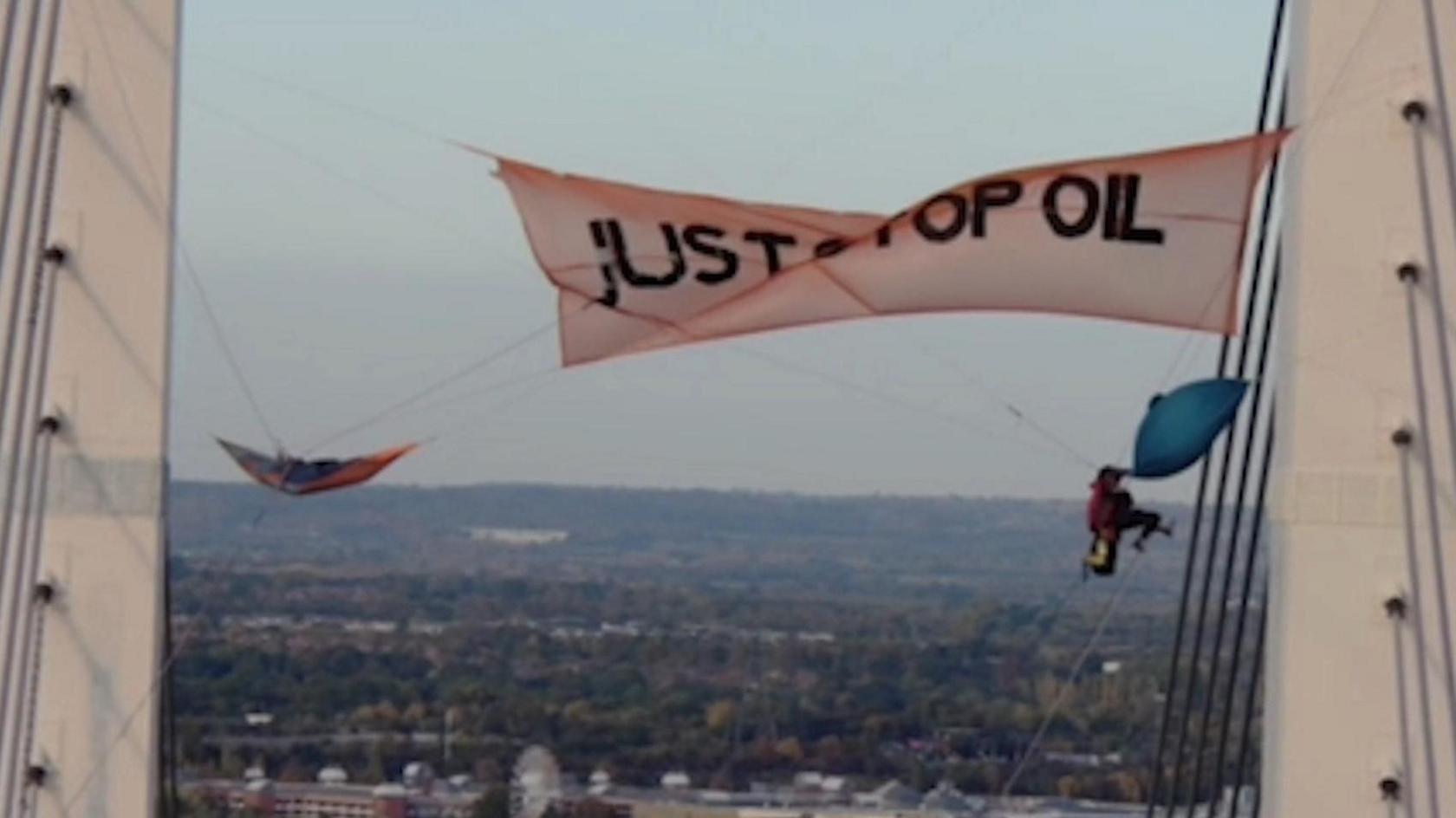
Marcus Decker and Morgan Trowland climbed the Queen Elizabeth II bridge
The protesters have repeatedly said their reasonable excuse is they are drawing attention to their fears for the planet, but judges say this is not a legal defence - as sitting in the road is not necessary to do this.
The first major test of this law came in October 2022.
That month JSO activists Morgan Trowland and Marcus Decker climbed up the Queen Elizabeth II bridge over the Thames estuary.
Some 36 hours, an eight-mile traffic jam, a million vehicles delayed and a £917,000 bill for the economy later, Trowland was jailed for three years and Decker for two.
The M25 five got longer sentences because they had been lead conspirators in a plan to get 45 people to bring the entirety of London’s orbital motorway to a halt.
At neither trial were the defendants able to use climate change as a lawful excuse for their actions.
In the M25 case there were periods when some of the defendants refused to co-operate with the judge at all as he told them to restrict what they were saying in court.
That meant the jurors had little choice other than to convict - yet outcry still followed.
But the key question is whether imposing sentences the protesters say are draconian will work to deter future demonstrations.
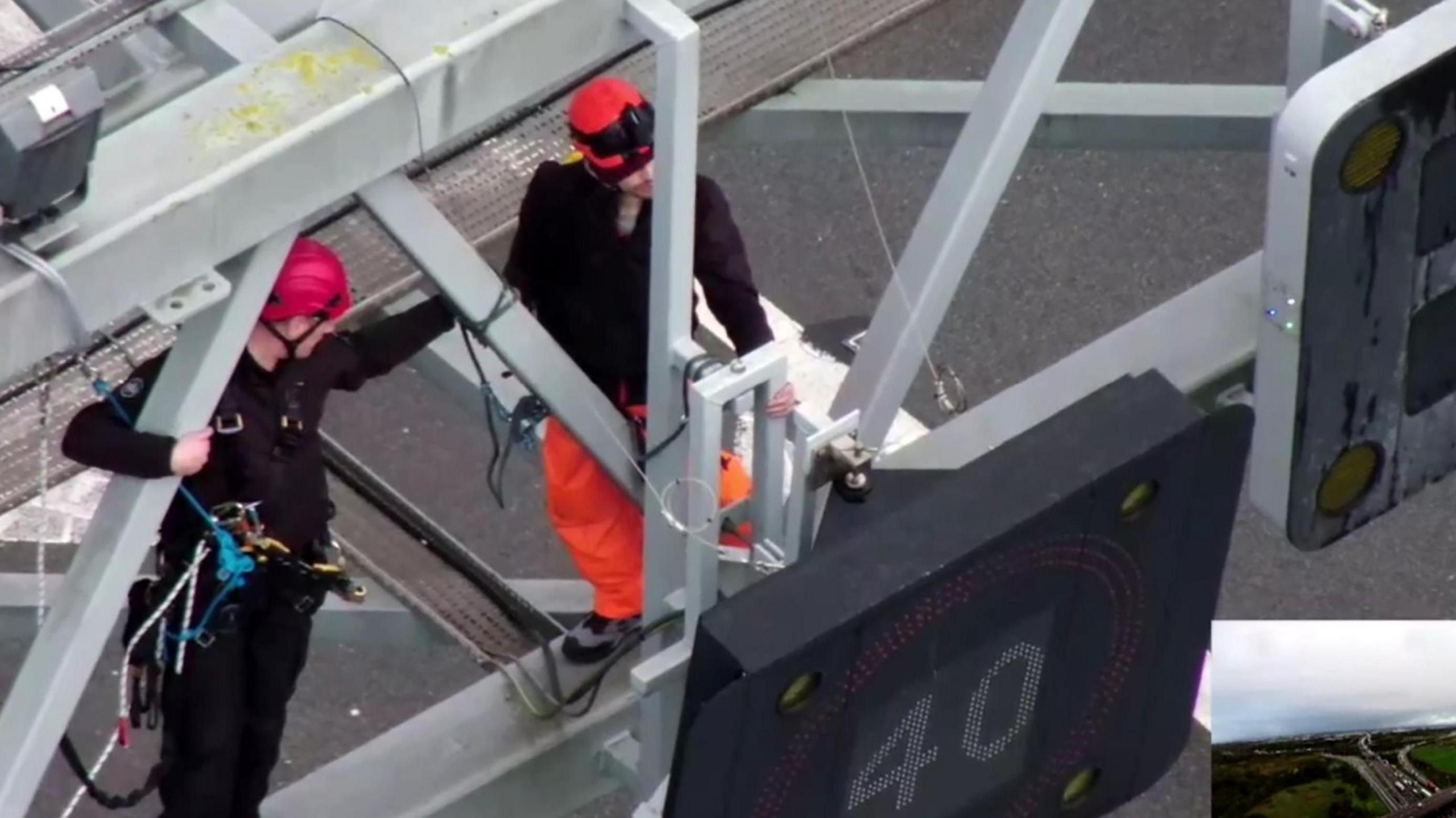
The protests on the M25 resulted in nearly 51,000 hours of driver delays, police say.

Cressida Gethin and her four co-defendants were convicted by a jury of conspiracy to intentionally cause a public nuisance
Arrests have always been part of Hallam’s tactics, which draw inspiration from the Suffragettes and Gandhi’s independence struggle in India.
The idea is that jailed activists become martyrs to the cause, living symbols of the urgency of the climate issue and their commitment to the cause. And the issue gets publicity too.
The new Labour government isn’t showing any signs of wanting to change the law.
Hallam certainly thinks a change in policy is unlikely. “They’ll probably go for the easy win of hitting people who most people don’t like," he suggested.
So have Just Stop Oil and groups like it run out of legal road?
Not quite.
Judges at the European Court of Human Rights in Strasbourg have long held the view that peaceful protesters should not be jailed.
The court could rule that the law in England and Wales is incompatible with basic rights to protest and free speech.
At that point not only would Sir Keir Starmer be in a very sticky position, but the protesters themselves may be emboldened to reach for the super glue once more.
Related topics
- Published24 July 2024
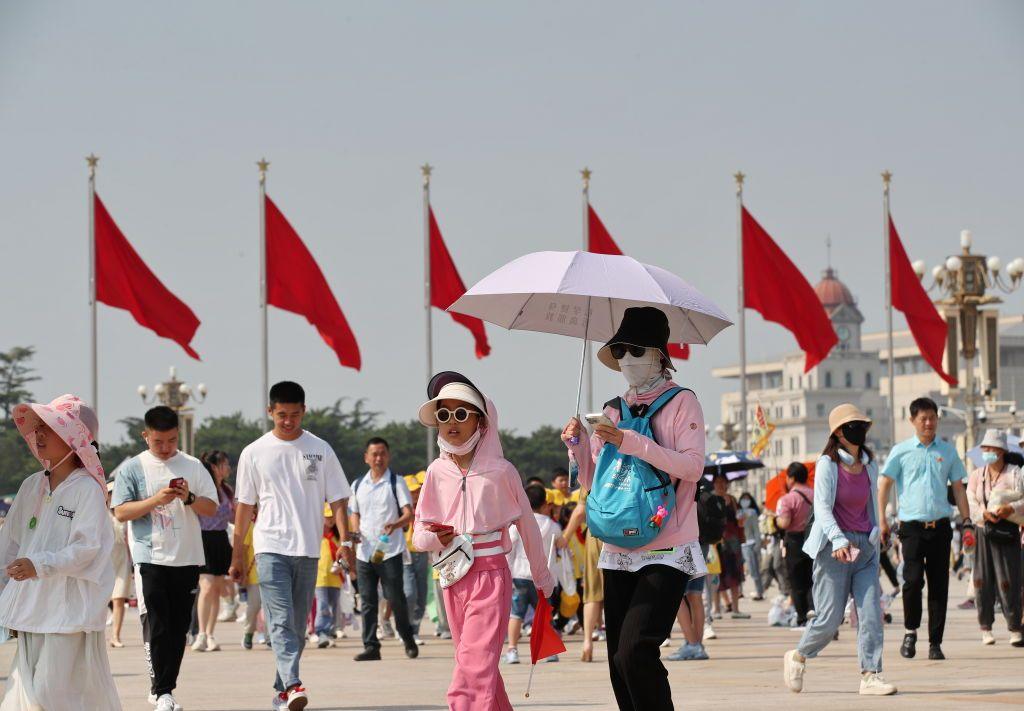
- Published13 November 2024
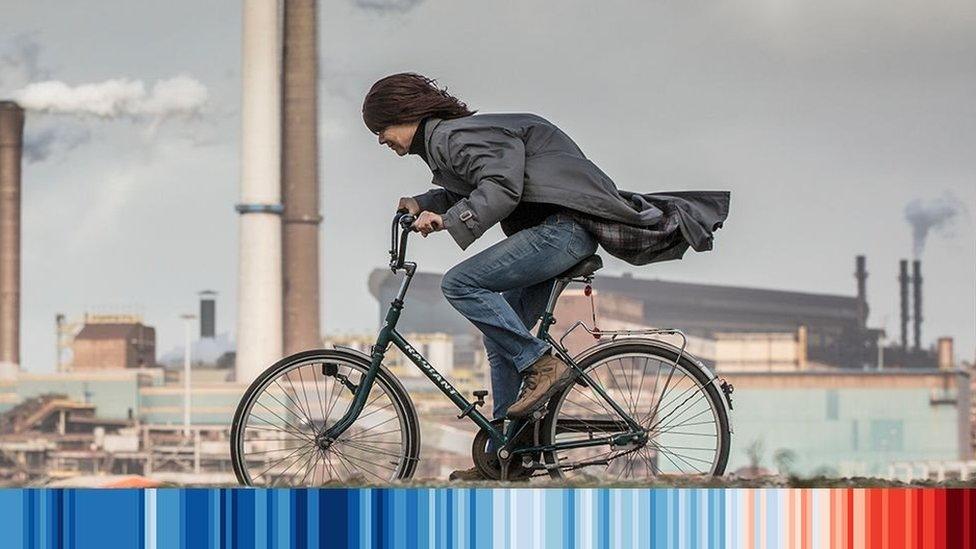
- Published17 July 2024
